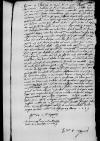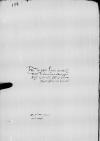List #2128
Ioannes DANTISCUS do Tiedemann GIESEHeilsberg (Lidzbark Warmiński), 1539-03-29
Regest polski:
Dantyszek pochwala odpowiedź Giesego na list króla [Zygmunta I]. Podziela podejrzenia adresata co do spraw poruszonych w królewskiej cedule. Czuje się bezradny wobec faktu, że los zesłał im [Stanisława Kostkę], którego wpływowi przypisuje również upomnienia królowej [Bony Sforzy]. Pokrzepił go natomiast życzliwy list króla.
Chciałby zrewanżować się Giesemu, wysyłając adresowaną do siebie korespondencję, musi na nią jednak najpierw odpowiedzieć. W ciągu trzech dni wyprawi na dwór posła z listami swoimi i Giesego.
Adresat niepotrzebnie dziękuje za polecenie go podkanclerzemu [Samuelowi Maciejowskiemu]. Dantyszek nie wątpi, że znajdą w nim przyjaciela i patrona.
Dantyszek jest wdzięczny za lekturę swego wiersza [Carmen paraeneticum ad Constantem Alliopagum...], jednak wolałby otrzymać więcej poprawek. Cieszyłby się, gdyby opinia Giesego o [o tym, że niepotrzebne są usprawiedliwienia umieszczone we] wstępnej części (proclesis) utworu była słuszna, zdaje sobie jednak sprawę ze swoich ograniczeń. Wyjaśnia też, że fragmenty, które Giesemu wydają się zbędne, są reakcją na przesłane mu wcześniej utwory. Postanowił wstrzymać się z publikacją poematu, póki z Wittenbergi nie odpisze mu jego adresat i inspirator [Eustachy Knobelsdorf].
Dantyszek dopomina się o bardziej wyczerpującą odpowiedź Giesego na swój ostatni list.
Obiecuje wkrótce odesłać Giesemu akta sejmu krakowskiego.
| odebrano 1539-03-30 Rękopiśmienne podstawy źródłowe:
Pomocnicze podstawy źródłowe:
Publikacje:
| ||||||||
Tekst + aparat krytyczny + komentarz Zwykły tekst Tekst + komentarz Tekst + aparat krytyczny
Reverendissimo in Christo Patri et Domino, domino
Reverendissime in Christo Pater et Domine, frater et amice carissime et honoran(de) or honoran(dissime)⌈honoran(de)honoran(de) or honoran(dissime)⌉.
Salutem et fraternam commendationem.
Legi heri, quae Dominatio Vestra Reverendissima ad litteras regias respondit. Quae placent et pro rerum statu commodiora esse nequeunt. Sic etiam invenio rem habere in iis, quae scheda regia[1] continentur, quemadmodum Dominatio Vestra Reverendissima suspicatur, sed quid faciemus, cum
Misissem vicissim et eas cf.
Quod gratias mihi agit Dominatio Vestra Reverendissima pro commendatione ad reverendum dominum
Gratum mihi fuit plurimum, quod Dominatio Vestra Reverendissima cf.
Nihil video in cf.
Quam diutissime valere et me commendatum haberi cupio ex animo.
Dat(ae) or Dat(um)⌈Dat(ae)Dat(ae) or Dat(um)⌉
Reverendissimae Dominationis Vestrae frater integerrimus
Postscript:
Retinui apud me acta


 BCz, 245, p. 158
BCz, 245, p. 158